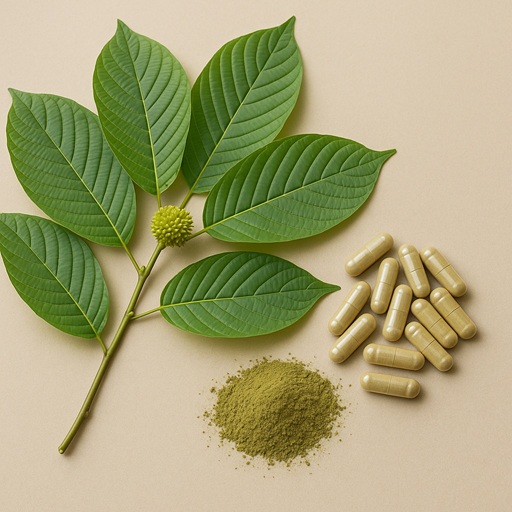Kratom, a plant native to Southeast Asia, has gained widespread popularity in the United States for its stimulant and pain-relieving properties. Florida has long been one of the states where kratom was accessible to adults, but in recent years, the state has tightened its regulations. While Florida has not banned kratom entirely, new laws and emergency rules have introduced significant restrictions that consumers, retailers, and advocates need to understand.
Background on Kratom in the U.S.
In many parts of the country, kratom occupies a gray legal area. While the federal government has not classified it as a controlled substance, several states—including Alabama, Arkansas, Indiana, Rhode Island, Vermont, and Wisconsin—have enacted full bans. In contrast, states like Florida initially allowed broad access to kratom, but with increased public health concerns, regulators have moved toward stricter oversight. Florida’s actions reflect a growing national trend of balancing consumer freedom with safety concerns.
The Florida Kratom Consumer Protection Act
In 2023, Florida passed the Kratom Consumer Protection Act (KCPA). This law did not ban kratom, but it introduced key safeguards. Most notably, it prohibited the sale of kratom products to individuals under 21 years of age. It also set requirements for labeling and purity, aiming to prevent adulterated or contaminated products from reaching the market. By passing this legislation, Florida signaled that it was not seeking to criminalize kratom but to regulate it in a way that reduced risks while preserving access for adult consumers.
County-Level Restrictions
Despite statewide legality, some Florida counties have taken a stricter stance. Sarasota County enacted a local ordinance banning the sale, possession, and distribution of kratom entirely. Residents there face penalties if they are caught with kratom products, regardless of age. Other counties, such as Manatee, have debated similar measures. This patchwork of local laws makes it important for Florida residents and visitors to know the rules in their specific area, as legality can change just by crossing county lines.
Emergency Rule on 7-Hydroxymitragynine
The most significant shift came in August 2025, when Florida issued an emergency rule banning 7-hydroxymitragynine (7-OH) in concentrated or isolated form. While 7-OH is a natural alkaloid present in small amounts in kratom leaves, some manufacturers have extracted and concentrated it into gummies, tablets, tinctures, and other potent products. State officials argued that these concentrated forms carried a high potential for abuse, addiction, and public safety risks. By classifying isolated 7-OH as a Schedule I controlled substance, Florida effectively outlawed any product containing concentrated levels of this compound.
What Remains Legal in Florida
For now, natural kratom products remain legal across most of the state. Adults over 21 can still purchase kratom leaf, powder, and non-concentrated extracts, provided they meet labeling and purity standards under the KCPA. This distinction between natural and concentrated forms highlights Florida’s attempt to regulate responsibly rather than ban outright. However, because local ordinances can be more restrictive, residents and vendors must remain vigilant about county-specific rules.
Public Health and Policy Debate
Florida’s regulatory approach reflects the broader debate surrounding kratom. Supporters argue that natural kratom offers relief for chronic pain, anxiety, and even opioid withdrawal without the risks associated with pharmaceuticals. Opponents, however, warn that kratom is under-researched, can be addictive, and poses unknown long-term health effects. The emergency ban on 7-OH was justified by officials as a necessary step to curb abuse, but advocates counter that prohibition could push consumers toward unregulated or underground markets, potentially making the situation worse.
Implications for Consumers and Businesses
For consumers, the main implication is that natural kratom remains available but under tighter restrictions. Those who rely on concentrated extracts, however, will no longer have legal access in Florida. For businesses, compliance with labeling standards, age restrictions, and county-level bans is crucial. Retailers caught selling illegal forms of kratom or selling to underage buyers risk fines, license suspensions, and criminal penalties. The shifting legal environment also creates uncertainty for the kratom industry, which must now navigate state-by-state rules.
The Road Ahead
Florida’s evolving stance suggests that kratom’s legal future remains in flux. The emergency ban on 7-OH could pave the way for permanent legislation targeting certain kratom derivatives. At the same time, continued pressure from kratom advocates may push lawmakers toward more balanced solutions, such as expanded consumer protection laws instead of outright bans. Consumers and vendors alike should stay informed, as additional legislative or regulatory changes could arrive in the coming years.
Is Kratom Legal in Florida?
Yes, kratom remains legal in Florida, but with important restrictions. Under the Florida Kratom Consumer Protection Act, only adults aged 21 and older can legally purchase and use kratom products, and vendors must comply with labeling and purity requirements. Natural kratom leaf, powder, and non-concentrated extracts are permitted throughout most of the state. However, certain counties most notably Sarasota, have enacted their own bans, making it illegal to sell, possess, or distribute kratom locally. This means legality depends not only on statewide laws but also on where in Florida you live or travel.
In addition to these county-level restrictions, Florida issued an emergency rule in August 2025 banning 7-hydroxymitragynine (7-OH) in concentrated or isolated form. While this compound naturally occurs in kratom leaves in very small amounts, products that enhance or isolate 7-OH, such as gummies, drinks, or tablets with elevated levels are now classified as Schedule I controlled substances. As a result, natural kratom remains accessible to adults across most of Florida, but processed products containing concentrated 7-OH are illegal to sell, distribute, or possess.
Conclusion
Florida represents a middle ground in the national kratom debate, neither banning the plant outright nor leaving it unregulated. By restricting sales to adults, enforcing labeling rules, and outlawing concentrated 7-OH, the state is testing a model of partial regulation. Whether this approach strikes the right balance between safety and freedom remains contested. For now, Floridians can still purchase natural kratom, but they must navigate a landscape of local bans and statewide restrictions that could expand over time.

